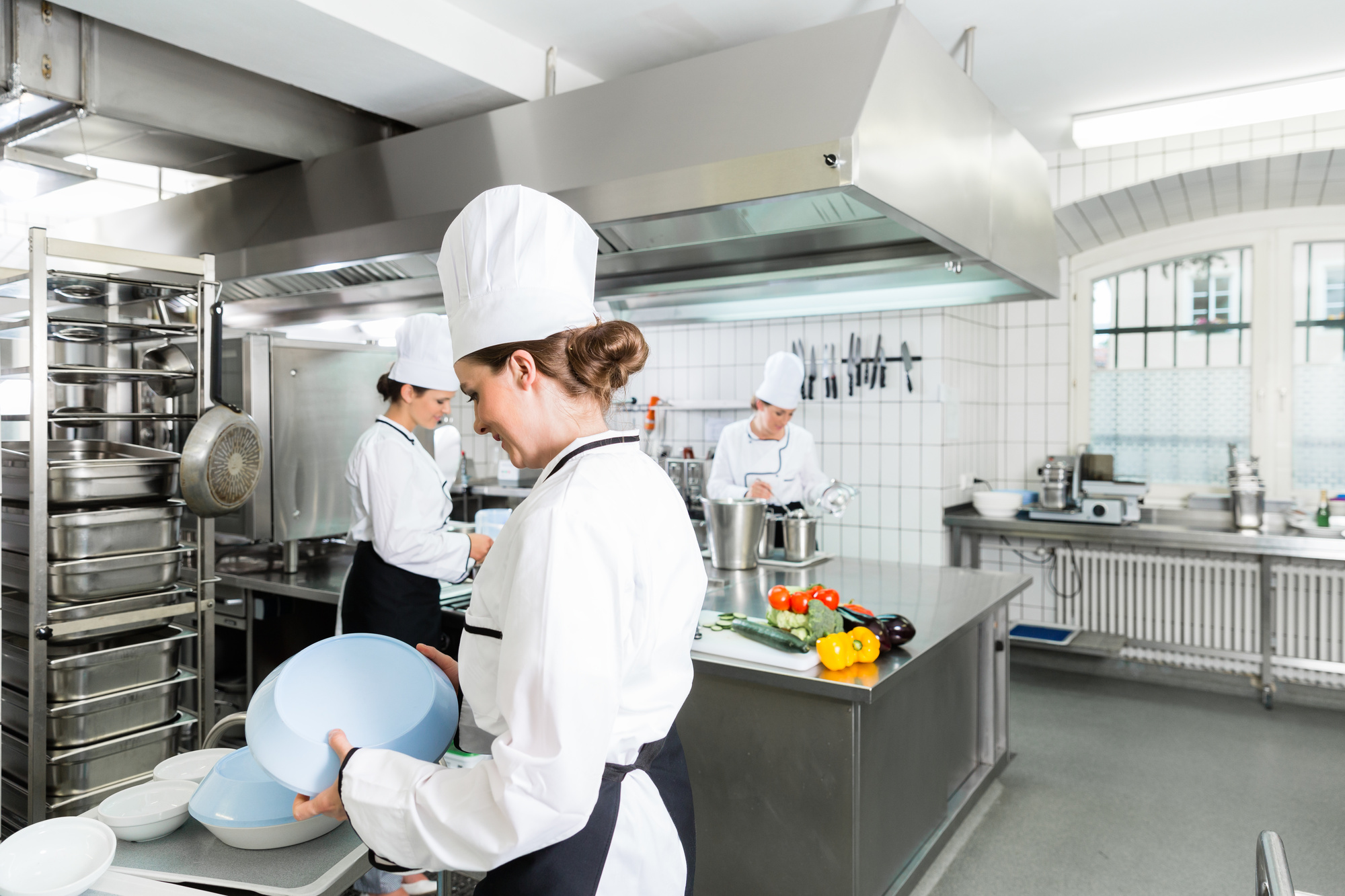There’s a growing trend in the food service industry. Home-based restaurants are starting to pop up across the country.
Organizations like Foodnome and Shef help these restaurant entrepreneurs get permits and fight for food handling laws that make this type of business possible.
If you’re thinking about opening a restaurant but don’t want the high overhead costs, you can start an at-home commercial food business.
You can open a restaurant, catering business, or sell food products right from your home. You’ll have to turn your home into a commercial kitchen and get commercial kitchen equipment.
What is the most essential equipment you need for your commercial kitchen? Read on to learn about everything from basic appliances to food preparation equipment so you can stock your commercial kitchen.
Food Prep Area
Food preparation has to happen in a system. This system is like an assembly line. The more efficient the system is, the more meals you can get out in a day.
That helps with profitability and table turnover rates. This starts with having the appropriate equipment for food prep.
Invest in commercial food processors, blenders, mixers, and slicers. Mixers help you prep baked goods like breads and pastries.
Food processors let you chop and grind everything from meat to vegetables. They’re versatile and essential equipment for any kitchen.
Slicers have one task, which is to produce a clean, consistent cut of meat or anything else you need to slice. This is important as you serve the same dish to customers. They expect uniformity.
Of course, you need to have worksurfaces to prep meals. Stainless steel benches are the best surfaces to use because they’re easy to maintain and don’t attract bacteria like other types of surfaces.
Your food prep area needs to have a full set of sharp knives and sharpening equipment.
Food Storage Needs
Read your state and local health codes about food storage regulations. Health inspectors are likely to visit at-home food businesses to make sure they’re up to code.
You don’t need to turn a room in your home into a walk-in freezer. You should have dry and cold storage areas in your commercial kitchen.
Dry storage is necessary for pasta, rice, canned goods, and flours. These items can’t get exposed to damp or humid conditions.
Cold storage should separate raw and cooked goods to prevent contamination and spoilage.
Cooking Supplies
You can just start with basic appliances like a stove, microwave, and grill. It largely depends on the volume and types of meals you plan to make.
You’ll have to check your space to see what kind of exhaust system you’ll need for the kitchen. There are two main types of systems.
A make-up air system replaces air and potentially harsh chemicals in the air with fresh air. An upblast unit extracts air from the kitchen.
Serving Supplies
You’ll have to find ways to serve your kitchen creations to customers. A home-based restaurant may not have the capacity or permission to serve meals to diners on-site.
That means you need a list of serving supplies. You’ll need to-go containers of all shapes and sizes, utensils, and packets of condiments. Add to-go drink items to the list as well.
The serving supplies for a commercial catering business are different. You’ll need several collections of glasses, plates, and utensils.
This allows you to match the dining ware with the occasion. You can purchase high-end dining ware for weddings and formal occasions. Casual sets are great for birthday parties and informal events.
You’d also need to have a way to safely transport everything from your home to the event. You’ll have to assume that you’ll break a couple of items, so leave plenty of room in your budget for replacements.
Commercial Kitchen Cleaning Equipment
Cooking up tasty meals all day can mean a messy kitchen at the end of your shift. Clean-up is essential equipment to prevent bacteria growth and keep your business in line with local health codes.
You’ll need a commercial dishwasher and cleaning supplies. You also need to have a plan to use them because grease and debris can add up over time.
You’ll want to have a cleaning plan for daily, weekly, and monthly tasks.
Flooring Supplies
You’re running around between food prep and the sink on a busy night. As you and your staff rush around the kitchen, water gets on the floor.
You’re too busy to notice until you slip and injure yourself. That could end up costing a lot of money in lost business and medical bills.
This is one of the common situations in commercial kitchens, which is why you need to remember to make your flooring part of the list of essential equipment for the kitchen.
Ceramic tile, epoxy, and vinyl flooring are among the most popular choices. They’re all durable and easy to clean and maintain.
You can lay nonslip mats down on top of the flooring in certain areas, such as the dishwashing area and high-traffic areas to prevent slips and falls.
Make Your List of Essential Commercial Kitchen Equipment
It’s a dream for many people to start a home-based food business. With food service laws getting relaxed in cities across the country, it’s never been a greater possibility.
You can start up your food business by getting the right commercial kitchen equipment. You can start off with basic appliances and cleaning equipment. Once you get your business up and running you can upgrade and add to your kitchen.
Just make sure you have systems in place so your kitchen is smooth and efficient as possible.
For more home-based business tips, check out the other articles on the blog.
